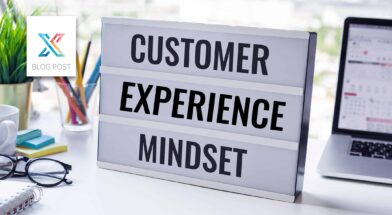Sound fundamentals drive successful client experience.
When one mentions the name Chick-fil-A®, visions of a tasty chicken sandwich and waffle fries come to mind. However, when it comes to marketing and business development, Chick-fil-A becomes synonymous with superior service. They give the customer more than they expect.
Corporate Philosophy
The company was founded in the 1960s with one simple philosophy – "to have a positive influence on all who come in contact with Chick-fil-A®." Imagine what your working life would be like if your company was truly managed with that philosophy.
What makes Chick-fil-A’s success so remarkable is there is no secret formula to their training and hiring practices. If you search “Chick-fil-A training program” on Google right now, you end up with just a few hits. Most of them will be articles written about how they are incredibly selective on who they hire. Everyone from the CEO down to the teenager cleaning the bathrooms buys into the "practice what you preach" mentality.
People
Chick-fil-A has no magic bullet giving them an unfair competitive advantage. Their employees simply have a desire to provide great client service already built into their DNA. Their rigorous hiring process and subsequent personalized training program bring those characteristics to the surface. In study after study, Chick-fil-A stands alone as the leader in delivering a high-quality customer experience. There is a gaping chasm separating them from second best. In fact, they have a list of customer service accolades and awards that none of the other fast-food chains combined come close to touching.
Personal accounts of people who have visited company CEO Truett Cathy’s office in Atlanta, Georgia share similar stories. He is clearly passionate about what he does and everyone who works for him doesn’t need special training. They already bring their values and personalities with them. Visitors leave the building with a wooden ruler with the words “Golden Rule – do unto others as you would have others do unto you” printed on them. A simple, time-tested message, yet so very effective.
Differentiation
In our industry, the same philosophy can be utilized to differentiate your company from a competitor.
Be honest. Can you really say your company is that much different than the other firm across town? Unless you suddenly become a specialized, boutique company, you will always struggle to come up with a list of very specific and unique differentiators that no one else offers. But that’s okay. Being a professional services firm with multiple disciplines lends itself to similarities with other companies who offer similar services. It’s unavoidable.
So maybe the answer to differentiation isn’t a talking point, or elevator speech, or new service line. Maybe it has something to do with the total client experience.
Client Experience
Think about your last visit to Burger King® and how you were treated. Chances are you were served by a less than enthusiastic cashier making minimum wage. He probably never made eye contact with you. Failed to say thank you. And, may or may not have completed your order quickly and correctly.
Now recollect your last experience at Chick-fil-A. Regardless of location, their store was clean. They had plenty of staff to handle all aspects of the restaurant. They greeted you with genuine enthusiasm. Filled your order in under 90 seconds. Wiped the dripping soda from your cup. And, ended the transaction with two simple words – “my pleasure.” That is an example of doing more than the typical fast-food customer expects. It translates into more loyal, repeat customers than any other franchise. And, ultimately it differentiates them from a sea of competitors.
When was the last time your firm went above and beyond what was expected and didn’t nickel and dime the client in the process?
Commoditization
Yes, times are still tough. Competitors are desperate for work, often cutting their fees and “buying” projects out from under you. But their lack of discipline in following a solid customer-oriented marketing plan and client-first attitude will cost them in the long run. Commoditizing our industry simply isn’t sustainable. It turns your staff into factory workers churning our sets of plans rather than passionate, caring, problem solvers.
Other than Chick-fil-A’s effective “Eat Mor Chickin” cow advertising campaign, a majority of their marketing expenses are directed at the local level. They strongly encourage each franchisee to become very active in their communities. Employees are taught they are part of a winning team. Staff is also taught to get to know their customers and build long-term relationships with them.
Success
Their success cannot be denied. They continue to post annual sales increases and they generate more revenue per restaurant than any other fast-food chain ($3.9 million). The chain generated nearly $5.8 billion in revenue in 2014, making it the eighth-largest fast-food chain in the US according to QSR. The base pay for their employees is 30% higher than their competitors and they are the only fast-food chain closed on Sundays – historically one of the busiest days for the foodservice industry.
Ultimately the A/E/C industry can learn a lot from a chicken sandwich. Treat the customer how you want to be treated. Give back to the local community. Hire people who genuinely care about their clients (both internally and externally) Clients will reward you with their loyalty and more projects regardless of whether your fees are a little more than your competitors.
As WK Dickson's Vice President and Director of Marketing, Kraig is responsible for managing the company's brand and identity, client feedback and CRM programs, market research, corporate communications, public relations, strategic planning, business development analytics, and social media marketing. He has nearly 25 years of experience in marketing for the professional services industry, including leading teams into new and innovative service launches, driving down the cost of sales, and improving win rates on project pursuits.
If you'd like to focus on the fundamentals and begin implementing a client experience management program to differentiate your brand, let us know.





